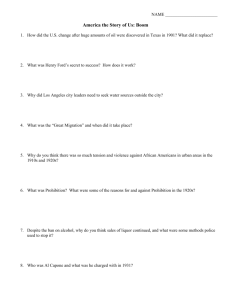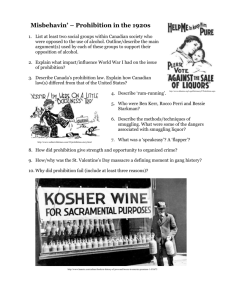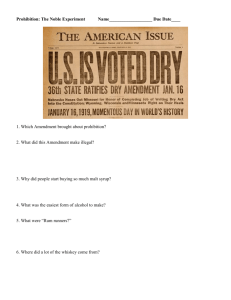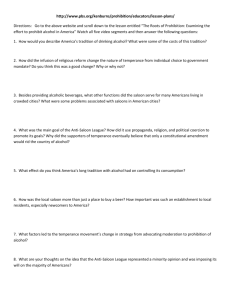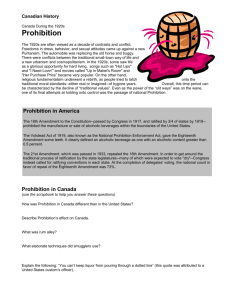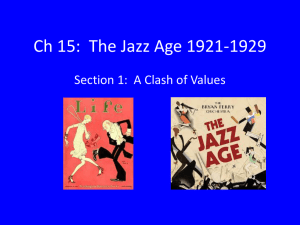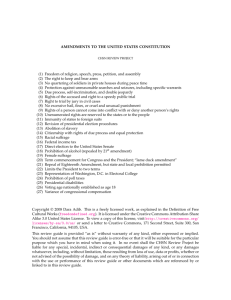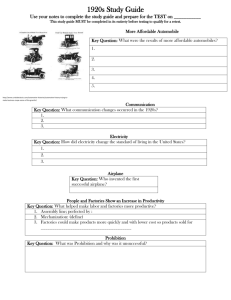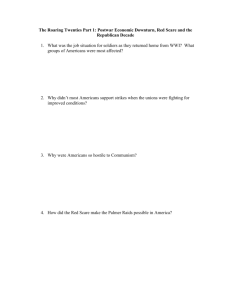Prohibition
advertisement
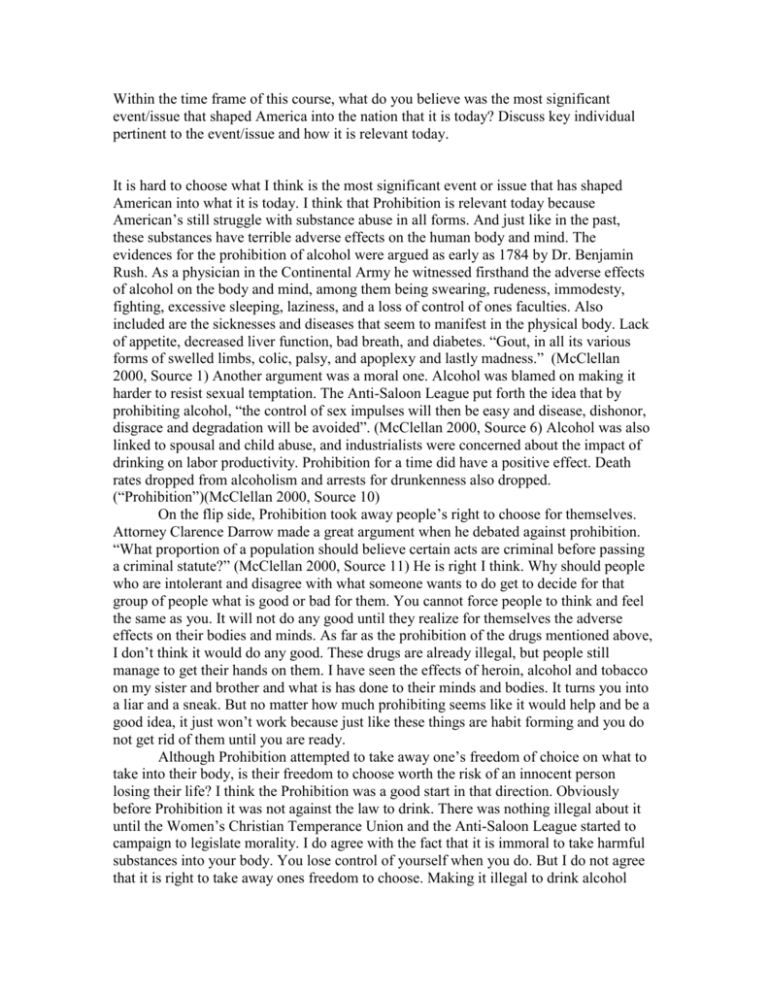
Within the time frame of this course, what do you believe was the most significant event/issue that shaped America into the nation that it is today? Discuss key individual pertinent to the event/issue and how it is relevant today. It is hard to choose what I think is the most significant event or issue that has shaped American into what it is today. I think that Prohibition is relevant today because American’s still struggle with substance abuse in all forms. And just like in the past, these substances have terrible adverse effects on the human body and mind. The evidences for the prohibition of alcohol were argued as early as 1784 by Dr. Benjamin Rush. As a physician in the Continental Army he witnessed firsthand the adverse effects of alcohol on the body and mind, among them being swearing, rudeness, immodesty, fighting, excessive sleeping, laziness, and a loss of control of ones faculties. Also included are the sicknesses and diseases that seem to manifest in the physical body. Lack of appetite, decreased liver function, bad breath, and diabetes. “Gout, in all its various forms of swelled limbs, colic, palsy, and apoplexy and lastly madness.” (McClellan 2000, Source 1) Another argument was a moral one. Alcohol was blamed on making it harder to resist sexual temptation. The Anti-Saloon League put forth the idea that by prohibiting alcohol, “the control of sex impulses will then be easy and disease, dishonor, disgrace and degradation will be avoided”. (McClellan 2000, Source 6) Alcohol was also linked to spousal and child abuse, and industrialists were concerned about the impact of drinking on labor productivity. Prohibition for a time did have a positive effect. Death rates dropped from alcoholism and arrests for drunkenness also dropped. (“Prohibition”)(McClellan 2000, Source 10) On the flip side, Prohibition took away people’s right to choose for themselves. Attorney Clarence Darrow made a great argument when he debated against prohibition. “What proportion of a population should believe certain acts are criminal before passing a criminal statute?” (McClellan 2000, Source 11) He is right I think. Why should people who are intolerant and disagree with what someone wants to do get to decide for that group of people what is good or bad for them. You cannot force people to think and feel the same as you. It will not do any good until they realize for themselves the adverse effects on their bodies and minds. As far as the prohibition of the drugs mentioned above, I don’t think it would do any good. These drugs are already illegal, but people still manage to get their hands on them. I have seen the effects of heroin, alcohol and tobacco on my sister and brother and what is has done to their minds and bodies. It turns you into a liar and a sneak. But no matter how much prohibiting seems like it would help and be a good idea, it just won’t work because just like these things are habit forming and you do not get rid of them until you are ready. Although Prohibition attempted to take away one’s freedom of choice on what to take into their body, is their freedom to choose worth the risk of an innocent person losing their life? I think the Prohibition was a good start in that direction. Obviously before Prohibition it was not against the law to drink. There was nothing illegal about it until the Women’s Christian Temperance Union and the Anti-Saloon League started to campaign to legislate morality. I do agree with the fact that it is immoral to take harmful substances into your body. You lose control of yourself when you do. But I do not agree that it is right to take away ones freedom to choose. Making it illegal to drink alcohol definitely turned it from an ugly vice, into something criminal. Prohibition may have actually added to the problem of people drinking. “The fact that the consumption of intoxicating liquor is illegal has in itself been sufficient to lead many Americans who formerly drank little or nothing to conform to a fashionable habit at social gatherings of carrying small pocket-flasks of home-brewed or imported spirits.” (McClellan 2000, Source 10) Prohibition led to “corruption and contempt for law and law enforcement among large segments of the population. Organized crime filled that vacuum left by the closure of the legal alcohol industry. Homicides increased in many cities, partly as a result of gang wars.” (“Prohibition”) And in a report published by the Department of Commerce, it showed that there was an actual increase in criminals in State prisons between 1917 and 1922, and that during the same time frame there was also a rise of prisoners in Federal detention centers as well. (McClellan 2000, Source 10) Prohibition seemed like a good idea at the time, but it may have caused more problems than it stopped. McClellan, Jim r. Changing Interpretations of America's Past. Dushkin/McGraw-Hill, 2000. "Prohibition." Digital History.
